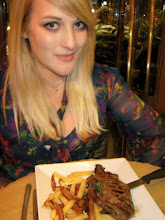A lesson in parental love for the 21st century: I got a text from my Dad the other day that read, "Mum noticed you hadn't been tweeting much recently, and we wondered if you were ok?"
I tell this story not to shame my parents for neglect - indeed, I think it shows extraordinary sensitivity on their part that my social networking is monitored for irregularities, rather than just waiting for me to burst into tears over the Easter dinner table and throw a positive pregnancy test/court summons down in front of the Vienetta. No, I'm mentioning it partly because it's hilarious, and partly because it's an interesting comment on our tendencies for chronic oversharing (mainly because it's hilarious.)
I know I write a lot about the internet. I do. It's not like I'm trying to be Ms Totally Facebook '10, but a column on the intricacies of online communication just seems to fall out of my head every six weeks or so as a matter of course. Like Dickens with street urchins or Jane Austen with coquettish husband-chasing, I am just writing what I know*.
And think about it - back in the days of the coquettish husband-chasing, if anything had been wrong with me (gout, let's say, or prolonged swooning), it would probably have taken days for the tear-stained letter to reach my parents, with all the usual threats of highwaymen, diphtheria and road obstruction by peasant folk to stand in its way. Now all that's needed is a regular log-in to check that the words "Checked myself into rehab for nail varnish remover abuse, fml :(" haven't appeared on the screen, and they can rest assured for another day that their eldest offspring is safe and well in the world.
It could be a bit miff-making, that my parents don't see my online absence and think "oh good, eldest child must be off having a fulfilling career and social life," but instead "cripes, maybe she's in a gutter somewhere." But actually, I'm flattered that my Mum considers online silence as a sign that something's wrong with me. It means that I haven't yet become an Chronic Online Oversharer (or COO for short, as in "coo, looks like Susan and Barry are totally breaking up again…").
Oversharing is probably, notwithstanding identity theft, paedophilia and Chat Roulette, the worst thing about the internet. They're the new bane of society, COOs, to join the list beneath croc-wearers, close-talkers and people who start every sentence with "I'm not being funny, but" (as sure a sign as ever there was that no, they're not being funny).
In the olden days if you got bad news, you'd probably go and shout it off a hill, or quietly bite on a leather strap until you felt a bit better. Now the magnitude of your misery can be measured in slightly awkward comments from people you occasionally bump into in the Guildbourne Centre. Like the old adage about the tree in the forest - if you have a brutal break up or crippling case of cystitis and nobody reads about it on Facebook, do you actually suffer? The answer is yes, but you're saving us from suffering too. Just something to think about.
And while we're here, I'll take this opportunity to say - Mum, Dad? I'm fine thanks. But don't worry - if I lose a leg or anything, you'll read it here first.
*And I'll cheerfully admit that if there's a class full of teenagers in a century's time writing an essay entitled 'Compare and contrast Bravo's views on self-indulgent status updates with the following passage from More magazine, 2010', my work will be done.

